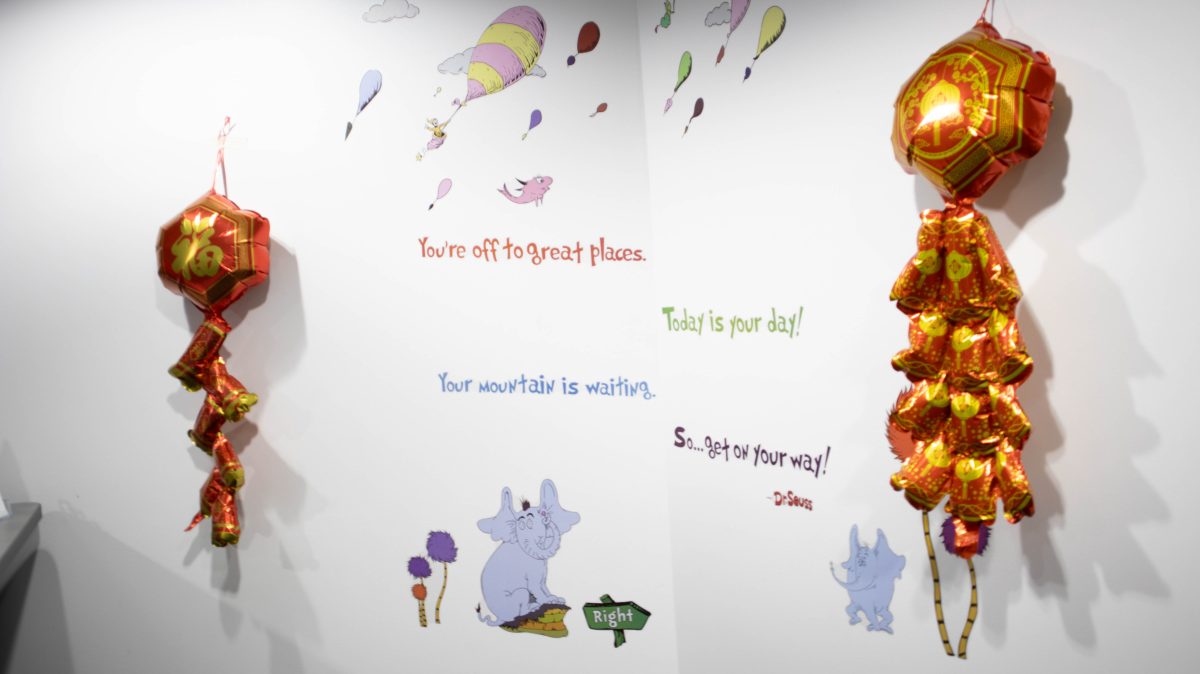Over 4,000 years ago, the Lunar New Year was created in China to shape agricultural seasons, but also as an urban legend to ward off evil spirits for the new year.
This year is the Year of the Dragon. Each Lunar New Year, a Chinese Zodiac animal, also called Shengxiao, changes to a new sign that represents a person’s personality and love compatibility.
The Lunar New Year is the biggest and oldest holiday celebrated in China. Other countries such as Singapore and Japan as well as New York City celebrate Lunar New Year as well.
Weber State University celebrated the Lunar New Year on Feb. 9. The celebration was held in the International Student and Scholar Center with free dumplings, snacks, crafts and music. Pan-Asian members and anybody interested came together to celebrate Lunar New Year.
“For most Asian countries, it’s like the biggest day for people, especially families, to get together to celebrate the whole year’s life and everything to celebrate for the next year,” Xiao Song, program director for the Pan-Asian Cultural Center, said. “I think it’s a very big event that brings people together to share the same culture, heritage and traditions, so it’s very important.”
Song said the Lunar New Year celebrations include a gala that usually has four-hour performances, plenty of food and time to recollect with family members and friends. Each day is dedicated to different relations.
The first day is spent with family members, and if you’re married, you spend the second day with your partner’s family. The third day is spent with relatives, then the fourth day is with coworkers, the fifth day is for business owners and the sixth to 10th day is spent with extended family and having a big lantern festival.
Food is an important part of the Lunar New Year. If you’re hosting, you must serve at least 12 dishes. There’s never an odd number of dishes served for the celebration because odd numbers bring bad luck.
Serving fish as a dish symbolizes plentiful resources, serving tofu symbolizes happiness and serving chicken symbolizes a happy family. Those three main courses are always served for the duration of the two weeks the celebration is being held.
Red envelopes, also known as Hongbao, are pocket-sized gifts elders give to children and young adults as a symbol of good luck and prosperity. Elders, like grandparents and parents, get the most red envelopes gifted to them. The color red in decorations and clothes symbolize passion, enthusiasm and good luck. With this, people clean and decorate their houses to prepare for the new year.
Last year, WSU had a Lunar New Year celebration with a small committee of international students familiar with Lunar New Year traditions. Shannon Sandau, International Student Program coordinator, had the idea to bring students together to brainstorm what foods and activities should be held for the celebration.
This year was planned around last year’s celebration but Song was involved with making crafts for multiple students who attended.
“Students from the Masters of Education program, the International Students Office and the Education Department have a partnership with the university in Shanghai [Shanghai Normal University], and so we bring a group of students to Weber State every year to do the Masters of Education,” Sandau said. “They were helping cook and monitor the event.”
On Feb. 23, there will be a Meet and Greet to connect with Song and Student Asian Senator Mackey Lin to recruit students with Asian involvement, make new clubs and involve faculty and staff. It’s a chance to help be involved in building up the biggest Pan-Asian program.
On April 13, the Pan-Asian program will be holding an open house for Asian and Pacific Islander Heritage Month with dumpling eating competitions, food, dances and artists along with possible keynote speakers.
There will also be an annual international banquet in April to raise money for international students and highlight West Africa.
The Pan-Asian cultural program along with other cultural programs will be expanding their offices this summer to give students a bigger space to study, socialize and have a spot to hold meetings and events for the next fall semester.















